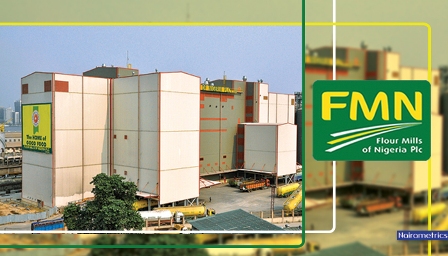Business
FAO, Stakeholders Seek Improved Millet Production

The Food and Agriculture Organisation of the United Nations (FAO) and other relevant stakeholders in the agriculture sector have called for the need to focus on the untapped opportunities within Nigeria’s agricultural sector.
They also demanded the reinvigoration of the role of millets as a key driver of economic growth, social development, and environmental sustainability.
The FAO Representative in Nigeria and to the Economic Community of West African States (ECOWAS), Mr. Fred Kafeero, made the call yesterday at the commemoration of the 2023 International Year of Millets, organised by the FAO, the International Fund for Agricultural Development (IFAD), and the World Food Programme (WFP) in collaboration with the Federal Ministry of Agriculture and Rural Development.
Speaking at the occasion, Kafeero stated that the country can transform the narrative surrounding millets, elevating them from being a mere staple to a strategic crop that contributes to the achievement of the Sustainable Development Goals (SDGs).
He reaffirmed the FAO’s commitment in offering technical assistance to the Nigerian government in its efforts to promote the cultivation, consumption, and commercialisation of millets.
“Millets, those tiny but mighty grains, have played an important role in the sustenance and nourishment of communities across the globe.
“They are resilient crops that have withstood the test of time, adapting to various agro ecological conditions and feeding generations. We recognize their immense nutritional value, and their contribution to food security, poverty alleviation, and sustainable agriculture.
“Together with all of you, and with renewed enthusiasm and determination, there is no doubt we will harness the potential of millets to combat hunger, malnutrition, and the challenges posed by climate change”, he said.
The Director, Food Safety at the Federal Ministry of Agriculture and Rural Development, Mrs Sugra Mamood, said Nigeria has a long-standing history of cultivating and consuming millet.
By promoting its cultivation, Mamood noted that the country can enhance agricultural sustainability, reduce vulnerability to climate change, and improve livelihoods for farmers.
Also speaking, the Indian High Commissioner to Nigeria, Shri G. Balasubramanian, said millet already is part of the staple diet in the sub-Saharan region and if suitably harnessed, can lead to food sufficiency in the arid regions of the world.
He noted that the government of India has been on the forefront of making millets popular and ensuring that it becomes a part of regular diet for millions through the Indian Millet Initiative, which is trying to bring efficiency in the entire millet supply-chain for better millet production, processing and distribution.
Balasubramanian stated that India has extended cooperation towards Nigeria for ensuring assistance with technical and knowledge sharing relating to Millet crops, research and development for development of better varieties.
Business
NCDMB, Jake Riley Empower 250 Youths On Vocational Skills

Business
NUJ Partners RSIRS On New Tax Law Education

Transport
Nigeria Rates 7th For Visa Application To France —–Schengen Visa

-

 Sports1 day ago
Sports1 day agoArsenal Women End Man City’s Invincibility
-

 Sports1 day ago
Sports1 day agoU-20 WWC: Falconets claim qualifier win
-

 Sports1 day ago
Sports1 day agoInsurance Deepen Enyimba’s Trouble
-

 Sports1 day ago
Sports1 day agoYouth Olympics preparation Gears up
-

 Environment1 day ago
Environment1 day agoRivers State Government Suspend Fire Service Collection Levies
-

 Sports1 day ago
Sports1 day agoTornadoes Set For NPFL exit over Stadium Ban
-

 Environment1 day ago
Environment1 day agoLASEMA pushes attitudinal change to cut fire outbreaks in Lagos
-

 Sports1 day ago
Sports1 day agoCologne Youth Team Set Crowd Record

